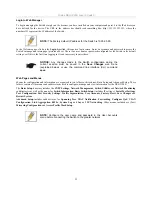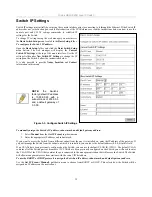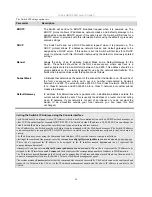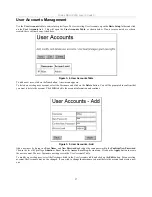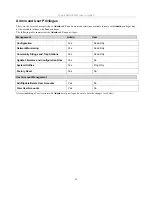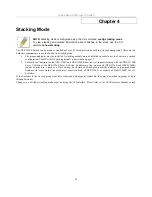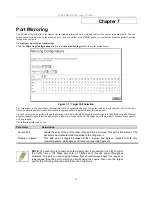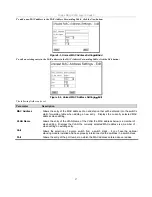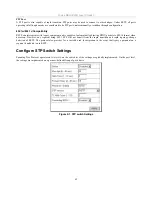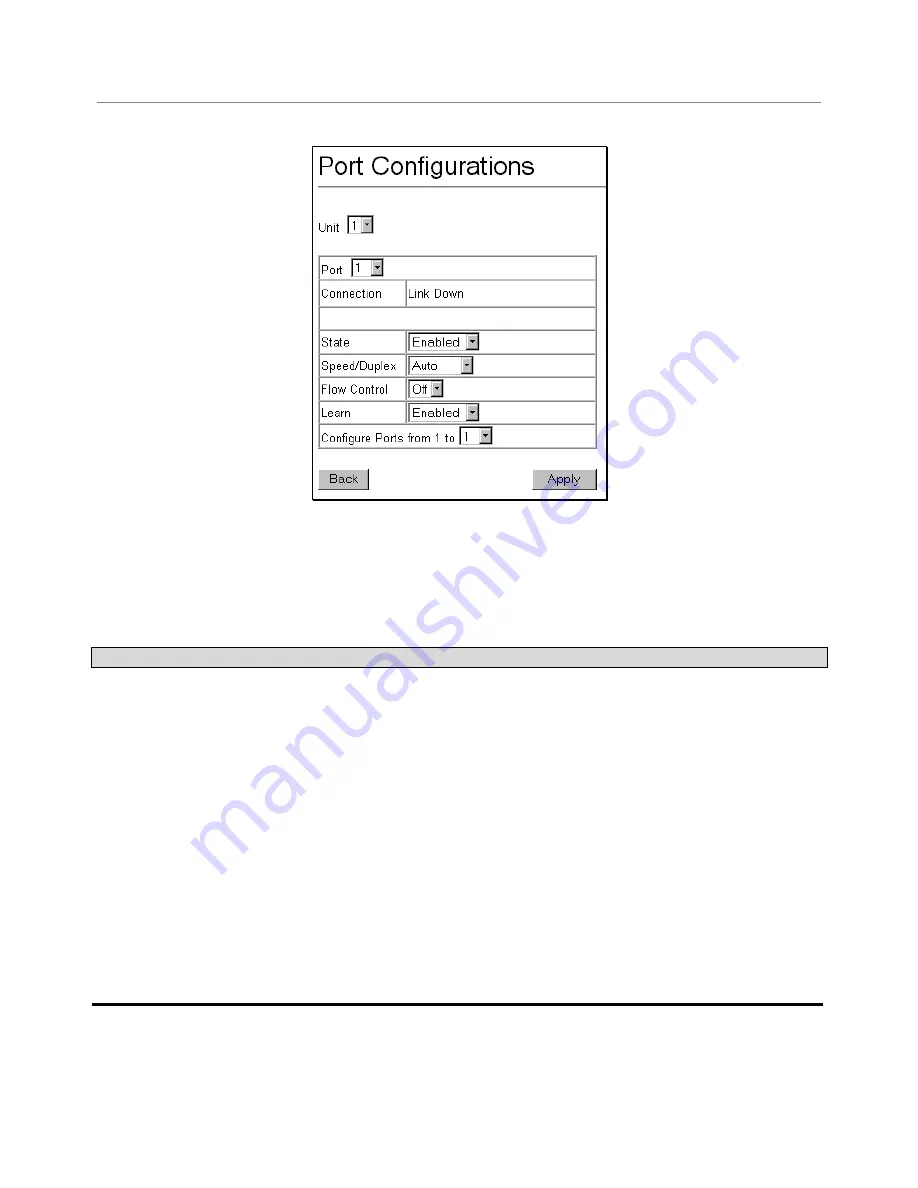
D-Link DES-3326S Layer 3 Switch
Click on the port you want to configure on the
Port Configurations
menu and then click the
Edit
button. This will open the
following dialog box:
Figure 5- 3. Port Configurations
−
Edit
The
Unit
drop-down dialog box allows you to select different switches in a switch stack, if you have the optional stacking
module installed and the switches in the stack are properly interconnected.
The
Port
pull-down menu allows different ports (on the currently selected Unit) to be selected for configuration. You can also
select a range of ports (beginning with the Port selected above) to configure with the
Configure Ports from _ to _
pull-down
menu.
The configurable parameters for ports include the following:
Parameter
Description
State
<
Enabled
>
Toggle the
State <
Enabled
>
field to either enable or disable a given port.
Speed/Duplex
<
Auto
>
Toggle the
Speed/Duplex <
Auto
>
field to either select the speed and duplex/half-duplex
state of the port. Auto – auto-negotiation between 10 and 100 Mbps devices, full- or half-
duplex. The Auto setting allows the port to automatically determine the fastest settings the
device the port is connected to can handle, and then to use those settings. The other
options are
100M/Full
,
100M/Half, 10M/Full,
and
10M/Half.
There is no automatic
adjustment of port settings with any option other than
Auto
.
Flow Control
Displays the flow control scheme used for the various port configurations. Ports configured
for full-duplex use 802.3x flow control, half-duplex ports use backpressure flow control, and
Auto ports use an automatic selection of the two. Select to turn Flow Control
On
or
Off
.
The default is On.
Learning
Enable or disable MAC address learning for the selected ports. When
Enabled
, destination
and source MAC addresses are automatically listed in the forwarding table. When learning
is
Disabled
, MAC addresses must be manually entered into the forwarding table. This is
sometimes done for reasons of security or efficiency. See the section titled
MAC
Forwarding
for information on entering MAC addresses into the forwarding table.
47

